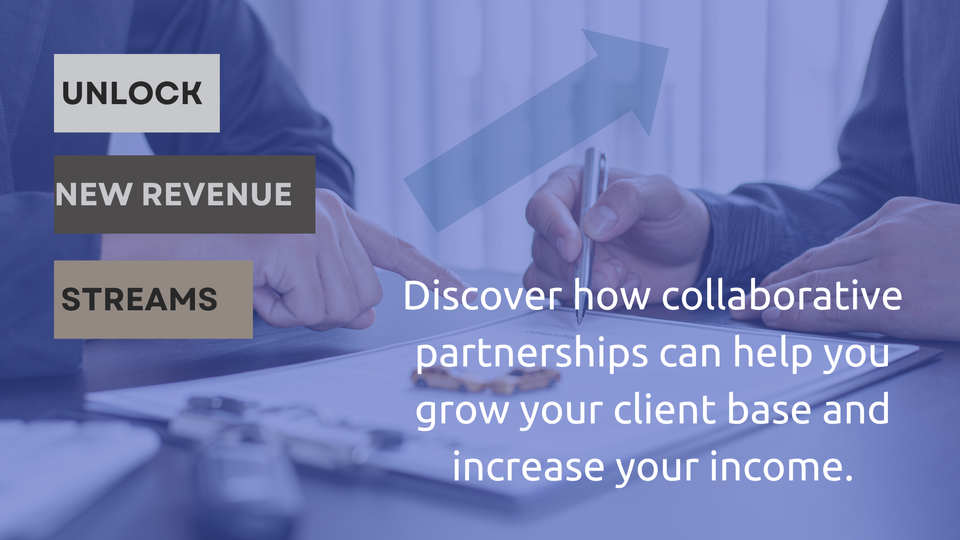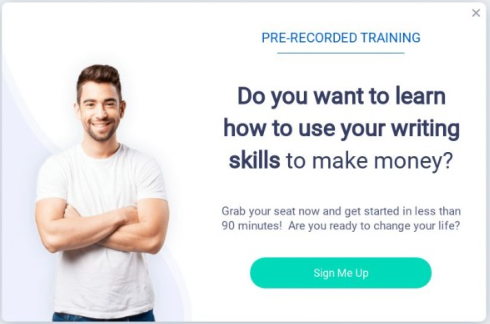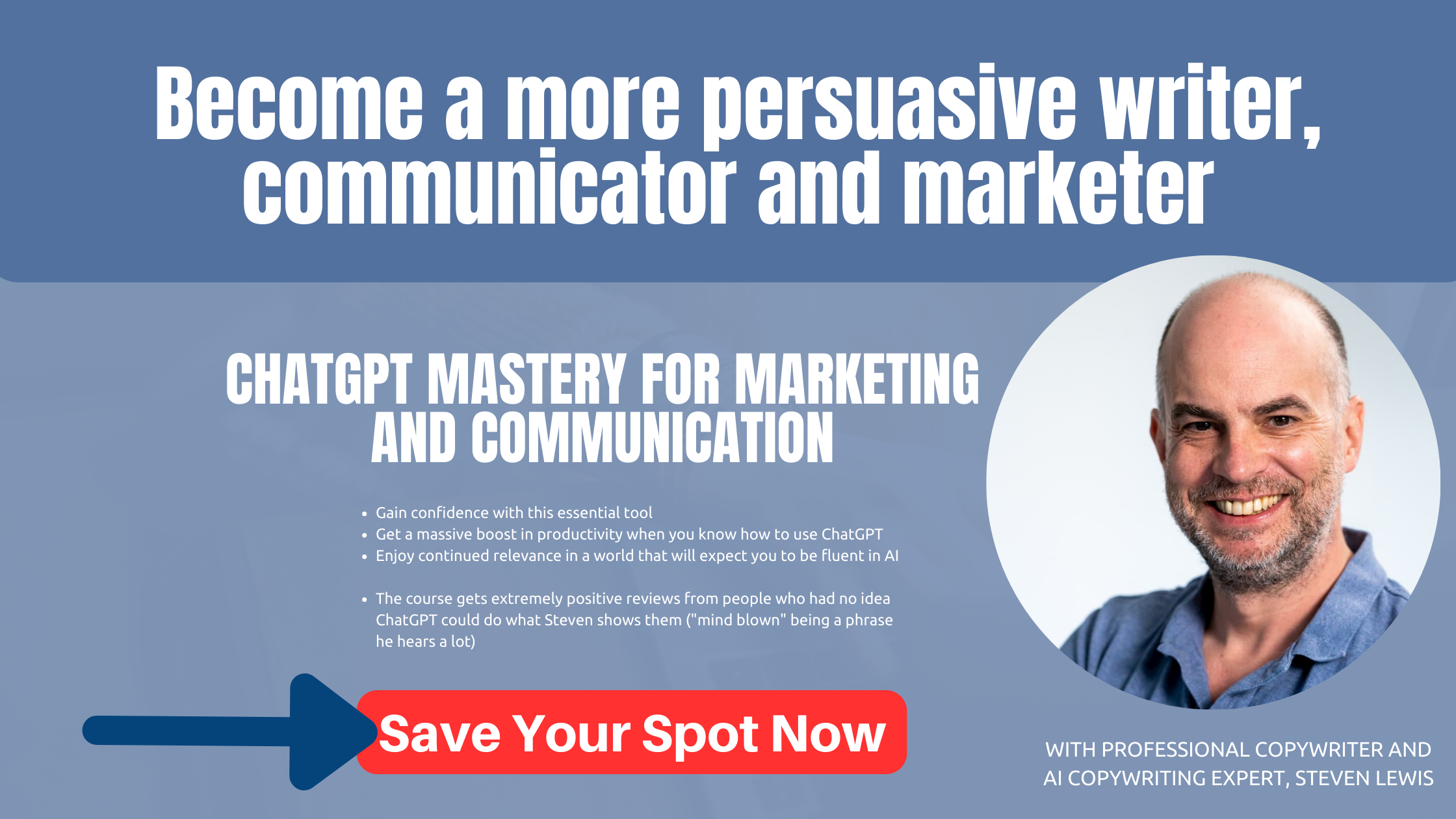Boost Your Freelance Writing Income with These Collaboration Tips and Strategies

When it comes to building your freelance writing business, collaborating with others can be a great way to build your list of potential clients, become more well known and increase your ability to bring in more money.
If you regularly listen to my Online Business Liftoff podcast, you’ll know that I enjoy collaborating with other entrepreneurs. And I've done a lot of them. Most of them successfully, others not so much.
Oftentimes these collaborations take the shape of putting together a quiz funnel, a workshop or masterclass with an interactive tool or a semi-passive income website.
But there are other types of collaboration that work great too.
Collaboration Examples
Here are some examples of collaborations that I’ve seen done or done myself in the past:
- This podcast episode with expert writer and content strategist, Treasa Edmond, where we combined our joint skills to build a Case study around an SEO optimised blog post to see how it helps with increasing website traffic
- Reciprocal guest blog posts or newsletters
- Running joint workshops together. This can be a great way of using your writing skills for the email and website copy, with the other person doing the teaching side of things
- Reciprocal podcast interviews - guesting on each other’s shows
- Featuring each other on a blog or newsletter
A slightly different example is where you might make a joint purchase of expensive software and then make that software available to both businesses. Years ago, one of my collaboration partners and I jointly purchased ConvertBox (affiliate link), which is a really excellent tool for setting up popups on websites.
We are both still using that same software today. You may have even seen how works on this website, with popups telling you about how to build your writing profile from scratch.

This particular way of collaborating is a bit more unusual because you’re sharing access to the software. And if one business grows more quickly than the other, it may need more access. Which means that the original agreement may need to be renegotiated.
What I Mean By "Collaboration"
Now, I want to be clear that when I talk about collaboration, I’m actually talking about something a little bit different to a formal team collaboration.
I’m talking about collaboration between entrepreneurs, small business owners, solopreneurs, microbusinesses, etc, where there’s a team of sorts, but it’s an informal set up.
Here’s how I define what I mean by collaboration.
It’s when different businesses work together to create value for others and revenue for both our businesses.
So these kinds of collaborations are basically a form of limited partnership that’s project-based, but typically results in both project partners creating (or having access to) a digital asset that will benefit both collaborators for several years.
How To Get Started Collaborating
Recently, I had someone ask me how I went about setting up a collaboration. So I thought I would share with you some of the thoughts and some of the actions that are needed to set up a collaboration that will stand the test of time.
Before You Start A Collaboration
Before starting a collaboration there’s some thinking and pre-work to do. You definitely do NOT want to set up a collaboration partnership with just anyone.
Here are some things you need to think about before you actually start collaborating.
Decide Who Brings What To The Table
You can have an arrangement where one person provides a skill or service that the other person doesn’t have in order to create the digital asset that will be used by one project partner to help their customers.
Any revenue is then shared out. Quizzes and quiz funnels are good examples of this type of collaboration arrangement.
Or you can have a situation where each person produces something of value for both partners’ ideal clients.
For example, whenever I collaborate on a workshop my OBL community advanced level people get free access to that workshop. And the other partner can use the workshop to add value for their customers whether they are part of an existing community or whether the workshop is being sold outside of any community
So you have to decide which of those two approaches you both want to take.
Some “Not-Negotiables”
Next, based on my experience, there are 5 key things that absolutely must be in place before you even start a collaboration
- Partnership Mindset
- Trust
- Common Purpose
- Collaboration Skills
- Expertise-Based Skills
Let’s look at each of these in more detail.
Partnership Mindset
Both partners must want to work together. If one of them is doing it because they feel they “have” to, it won’t be long before resentment builds up. Or maybe it means that they don’t bring the same level of energy, commitment and enthusiasm and the other partner gets annoyed.
Both partners must have a desire to help others (in other words, have an attitude of service) AND for you both to make money. If one of you wants to give everything away for free and the other one wants to charge, you’re going to end up with two unhappy people and neither of them will be satisfied with how things are going.
Respect is a critical part of a successful collaboration. Both collaboration partners must be respectful of each other’s time, ideas and viewpoints.
And both must be able to let the other person do what they are good at and not try to take over.
Both partners need to know that the other partner will be in it for the long haul, whatever the duration is for that agreed “long haul”. So you need to be prepared to be working together for a long time.
And you both need to be able to have difficult conversations.
For example, one of my collaboration partners thought they knew what they were in for when we started working together, but it wasn’t long before she realised that she actually DIDN’T know. Which meant that we needed to have several free and frank, but respectful conversations to get things sorted out and back on track
Trust
Trust is critical in a collaboration partnership. And the type of trust that’s needed isn’t always obvious.
You need to have common values, otherwise the partnership won’t last. At worst, the working relationship will end in tears when one person feels ripped off or taken advantage of in some way.
You need to be able to trust that the other person will be fair in their dealings with you. That they won’t rip you off financially if they are the one handling the money side of things.
And the money is handled, i.e. expenses paid and funds disbursed, will depend completely on how the collaboration is set up.
Sometimes both sides get in revenue each month. An example of that would be where a collaboration has resulted in an evergreen course being created and each partner has their own separate funnel going to the course. And how the money is split comes down to what’s been agreed.
You need to be able to trust that each person will do what they say they will do in a timely manner. Now, obviously, time and tasks are negotiable things and sometimes life happens. So a little flexibility is necessary but ultimately you have to trust that each person will do their part.
One important thing that will help the trust factor is to have a formal agreement in place, one that spells out exactly what is happening, what the goals are, who gets what, who does what, how disagreements will be handled and what happens when one or both partners decide to exit the collaboration partnership.
It can be as simple as an email with bullet points or a complicated legal document. But make sure you have something there so each partner can refer back to it in the future.
Common Purpose/Goals
It’s important to agree on a common definition for what would make the collaboration a success. And it almost goes without saying that you need to agree (and be clear about) who is being served and how.
Clarity around financial goals definitely matters, e.g. how much money is wanted from it each month, etc.
Having said that, sometimes collaborations can be more about growth and awareness, then about sales, so you want to make sure that your collaboration partner is clear about what they want, whether that differs from what you want and if not, whether your separate goals are compatible.
And finally, you need to agree how long the collaboration will last. There is a big difference between running one live workshop together and running one live workshop a month for a year. Or turning that one live workshop into an evergreen course and setting it up on autopilot as part of each of your businesses’ lead generation strategy

The “Soft” Skills You Need For A Successful Collaboration
Collaboration skills are a bit different to what I would call “expert” skills although they can blend together.
Collaboration skills are those soft skills that make it possible for you to successfully work with others towards achieving a common goal.
There’s a bunch of them, but here are the most critical ones.
Be A Clear Communicator
It’s really easy to think that we’re great at communication, but what can often happen is that what you said was not what the other person actually heard. So it’s important to keep checking in with each other to make sure you’re both on the same planet, let alone on the same page.
Which means that you have to be able to listen as well as talk. And be listening to understand, not just to prepare the next argument. Active listening is a skill in its own right. So if that’s not something you’re strong in…or your potential collaboration partner isn’t strong in, you might want to think twice before starting
Be Open-minded
There is no one right way of doing collaborations. So one of the most important aspects of collaborating effectively is to be able to be open to new ideas. When new ideas come up, both partners need to at least consider them.
Will they help customers more? Increase revenue? Extend the life of the collaboration? Or is it a shiny new object that will sidetrack you?
Project Management - Planning And Doing
Successfully doing a collaboration requires some pretty effective project management chops.
If one or both of you is organised, then a good planning session and a schedule for doing tasks should be enough.
However, if one of you is a bit more disorganized than the other, or maybe just busier, then it’s really helpful to designate one person to be the project manager where their job is to make sure things are scheduled and then done on time.
And talking about tasks, it’s absolutely vital that you both know and agree who is going to do what and what each collaboration partner is responsible for delivering.
For example, when I do a workshop collaboration, usually the other person will be responsible for the training and content and I’ll be responsible for creating the interactive tool to go with the content and I’ll also set up the sales funnel.
However, I’ve also done it the other way around where I’ve created the training and interactive tool, while my collaboration partner did all the marketing and set the sales funnel. Either way works. It just comes down to who has what skills.
Which means that it’s important to be adaptable. Just because you’re good at something doesn’t mean you have to be the one doing it. The other person may be able to do it just as well while you focus on something else they can’t do.
Debate And Discussion
Another key collaboration skill is being willing to debate and discuss things in a constructive way. Sometimes the debates will come when things are going wrong, but sometimes, they can also happen when things are going great, but there’s a sense they could be even better.
For example, when something needs to be changed or optimised somehow. It might be little things like marketing copy or it might be price or which customers you’re helping.
Making changes along the way, especially if they are based on observation or data you’ve collected will increase the chances that you’ll achieve your desired collaboration project outcomes.
Mistakes Are Guaranteed
Finally, one last point. You both need to take responsibility for mistakes. Mistakes are inevitable in a collaboration partnership. And sometimes they can have significant consequences. The most important thing you can do is put up your hand and say “yes, that was me. I made a mistake and I’ll do everything I can to fix it.”
Expertise-Based Skills Needed
This may sound a bit like teaching Grandma to suck eggs. But it’s super helpful to have complementary expertise when it comes to the lead generation or sales funnel and marketing side of things for any business, but especially for a freelance writing business.
For example, if someone has stronger marketing skills, or is better at writing sales copy, then those things are probably best sitting on their list of responsibilities. Or if someone is really good at the tech side of things and knows how to set up things on the backend, then let them handle that, while you do something else.
I’ve already mentioned the project management or coordination side of things. Whomever is the most organised and has the most available time, that can be their job.
And then there’s reaching out to existing networks. Some people are better at that than others.
I think you get the point. If you find you have similar skills it can get a bit tricky. You may have to bring in another partner or use an existing team member from one of the businesses to fill the gaps.

Red Flags To Watch Out For
Here are a few things about collaborative partnerships that I've learned the hard and painful way.
For a collaboration partnership to work, both you and your collaboration partner need to be hungry for success. If someone says that they “don’t need the money” it is a very strong sign that they are likely to bow out part way through the collaboration, or that it never gets started in the first place.
And if one partner or the other wants everything their own way, that’s a really bad sign, too. It's highly unlikely that the collaboration partnership will go the distance, at least not without a lot of pain.
Another situation that’s not great is when … even after there’s been an agreement about how the revenue that’s being generated will be divided up…one of the partner’s starts complaining about the revenue split.
Or they start saying things that make it obvious that they think they’re doing all the work and/or they no longer want to share the revenue, even if you did a lot of work on the front end to create the digital asset in the first place.
I’ve had this happen to me and it’s not a comfortable place to be. The only way to deal with a situation like this is to have an open and honest conversation about it.
Having said that, you do need to be prepared to be flexible when circumstances change. It’s far better to acknowledge reality and go with the flow instead of grimly hanging on to the original agreement.
Also remember that people forget, so be sure to document as much as you. It can be helpful to record discussions or at least take notes.
And be patient when people say, yes, that’s what I said, but it’s not what I meant. You should be consistently and continually working towards a shared understanding of who is doing what and what success looks like. Know that this will morph over time.
So aim for synergy, not perfection.
Breaking Up Is Hard To Do
But here’s the hard truth. Most collaborative relationships don’t last forever. And ending one can be really hard. So if that happens to you, try not to burn bridges, no matter how you might be feeling about the ending or breakup.
I’ve discovered that relationships are far more important than being right, even when it hurts.
So keep the breakup conversations respectful.
One last piece of advice to be sure to have strong boundaries. Be clear about what types of behaviours you’ll tolerate in the name of the collaboration and which ones you won’t.
Which means that at some stage, it might be you initiating the breakup. I once was in what I thought was a collaborative partnership. But it became more and more clear over the months that the other person was happy to take, take, take … but not to give back.
So I eventually had to say enough is enough and have the hard conversation that closed down that particular collaboration.
Collaboration partnerships can really give your freelance writing business a boost. And they can bring opportunities you've never dreamed of.
So take some time over a good coffee, tea or chilli hot chocolate (my favourite) and do some brainstorming about what kind of collaboration opportunities might be out there for you. And who you might collaborate with.
And if you have any questions about how a collaboration might work to help you grow your freelance writing business, click on the "Sign In" button at the top right of the website (you'll need to use the address you used to sign up to our newsletter), ask your questions and I’ll do my best to answer them.
Please note that as an Amazon Associate, we earn from qualifying purchases. That means that if you click on one of our affiliate links (these are clearly identified) then we will receive a small commission, for which we thank you. It helps us keep on providing informative posts that help you build your freelance writing career and business.






Member discussion